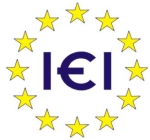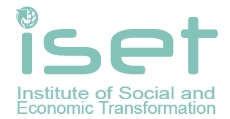The development of innovative startups and tech based companies in European countries
Abstract
Introduction. The global structure of economy and business has been changing. New technologies and innovations occurred replacing or minimizing the role of old once. A number of traditional companies and industries must adopt new emerging technologies in order to survive on the international market. Moving from industrial society to Industry 4.0 society a few critical transformations should be taken into account. If it is understandable that innovations and technologies can benefit the whole economy and society in many ways, it is important to analyze what are the external factors that accelerate the development of innovative startups and technologies to boost the growth, development and welfare of societies and economies.
Aim and tasks. The purpose of this article is to assess the development of startups and technology based companies in a number of European countries and to identify a group of countries that has the most favorable environment for startups and technology proliferations.
Results. The findings of the research revealed that the most favorable countries for startup and technology-based companies’ creation are Scandinavian and Western European countries, the least ones – mainly Balkans. The findings claim that macroeconomic stability and skills (broaden concept is human capital) are the most important factors influencing the creation and adoption of startups and technology-based companies. Meanwhile the national market size is the least important factor.
Conclusions. The conducted research presents that the most favorable countries for innovative startups and tech-based companies are mainly Scandinavian and Western European countries. It is important to notice that Scandinavian countries have exceptionally leading the list in this field. As analysis showed, macroeconomic stability and skills (to a broader concept human capital) are the most significant factors for technologies and innovations to occur. Finally, the market size seems to be the least important factor for technology and innovative startup development. It can be explained that startups and technologies by its nature are scalable businesses those market is entire globe.
Keywords:
startups, technology, innovations, European economies.References
2. Weiblen, T., Chesbrough, H. (2015). Engaging with startups to enhance corporate innovation. California Management Review, 57(2), 66-90.
3. Blank, S., Dorf, B. (2012). The startup owner’s manual: the step by step guide for building a great company. Pescadero.
4. Jonikas, D. (2017). Startup evolution curve. From idea to profitable and scalable business: startup marketing manual. Publisher: Createspace Independent Publishing Platform.
5. Ries, E. (2011). The lean startup: how today’s entrepreneurs use continuous innovation to create radically successful businesses. New York: Crown Business.
6. Blank, S. (2013). Why the lean start-up changes everything. Harvard Business Review, 91(5), 63-72.
7. Arundel, A., Barjak, F., Es-Sadki, N., Husing, T., Lilischkis, S., Perrett, P., Samuel, O. (2012). Respondent report of the knowledge transfer study.
8. Chung, H., Chen, C., Hsieh, T. (2007). First geographic expansion of startup firms: initial size and entry timing effects. Original research article journal of business research, 60 (4), 388-395.
9. Trott, P. (2008). Innovation management and new product development. 4th edition, Pearson education lim.
10. Nanda, R. Rhodes – Kropf, M. (2013). Investment cycles and startup innovation. Journal of Financial Economics, 110 (2), 403–418.
11. Mahajan, V., Muller, E., Wind, Y. (2000). EW- product diffusion models. Spring science & business media.
12. Alvarez, S., Busenitz, L. (2001). The entrepreneurship of resources based theory. Journal of Management, 27, 755-775.
13. Pfeffer, J., Salancik, G.R. (2003). The external control of organizations: a resources dependence perspective. Stanford University Press.
14. Simpeh, N.K. (2011). Entrepreneurship theories and empirical research: a summary review of the literature. European Journal of Business and Management, 3(6), 1–8.
15. Salamzadeh, A., Kirby, D. A. (2017). New venture creation: how start-ups grow? AD-minister No. 30 January- June, pp. 9-29.
16. OECD (2008). Handbook on constructing composite indicators: methodology and user guide.
17. World Economic Forum. (2019). The global competitiveness report. Switzerland.
18. Tvaronaviciene, M., Jurgelevicius, A. (2020). The new concept of human capital and its impact on economy in European countries. Polish Journal of Management Studies (in press).
If the article is accepted for publication in the journal «Economics. Ecology. Socium» the author must sign an agreementon transfer of copyright. The agreement is sent to the postal (original) or e-mail address (scanned copy) of the journal editions.






















